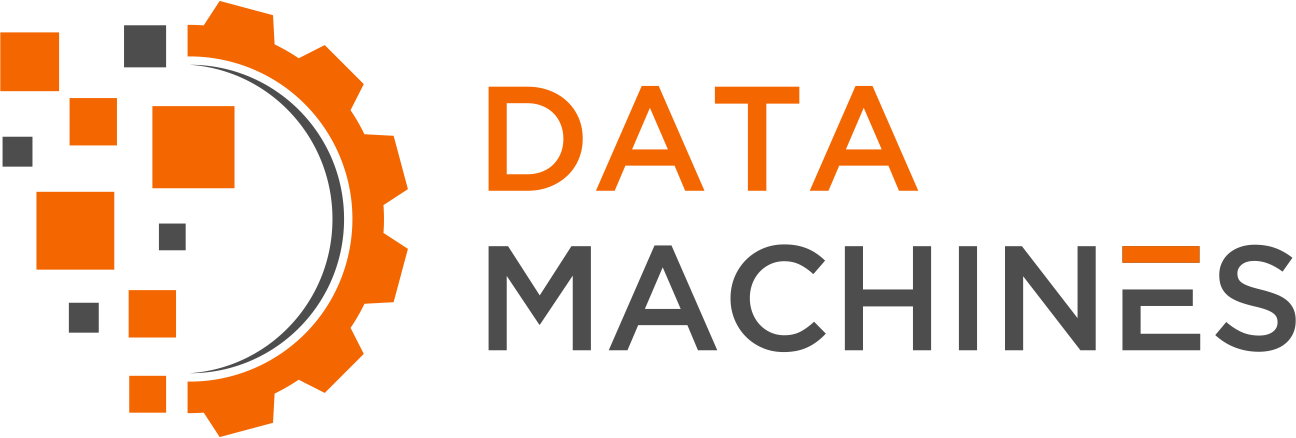Dr. Brian Dennis: Meet DMC's New CTO
Data Machines Corp. is excited to announce that Dr. Brian Dennis has taken on a new role as our Chief Technical Officer. Dr. Dennis has been with DMC since 2018, and has more than 20 years of experience in basic and applied data-centric research in the defense industry and academia. Dr. Dennis holds a Bachelor’s degree in computer science from MIT in addition to both a Master’s degree and PhD in computer science from UC Berkeley.
We had the opportunity to sit down with Dr. Dennis and talk to him more about the industry, his experience with DMC, and advice he has for those looking to break into the industry.
Why did you want to work in this industry?
My dad was a Systems Engineer (more sales than engineering) with IBM in its 80's heydays. I saw lots of computers, got to touch a mainframe here and there, and we eventually got one of the first IBM PCs available to home consumers. Then when I got to MIT, the freshman Computer Science class, 6.001, taught by Prof. Gerald Jay Sussman, was amazing and I found coding came naturally. Destiny thereafter.
Oh yeah, and video games. I loved 8-bit graphics (Atari 2600, Commodore 64) and dumped a lot of quarters in arcade machines (Space Invaders, Millipede, Tempest).
What do you enjoy about working with DMC?
The team first and foremost. When I started with DMC, there were many folks I had worked with or encountered on previous projects for the Defense Advanced Research Projects Agency (DARPA). The new (to me) colleagues were also extremely talented and fun collaborators. As we've grown, the additions have provided new perspectives and level-ups in different technical areas. We have a great mix of expertise and drive to succeed.
There's also a lot of hands-on technical work across the full computing stack, for all of the engineering staff. In my previous role, I could go from a meeting with a DARPA PM, back to the office for some coding, and then to our data center to configure open networking software on a 40GB switch for a new GPU cluster. Might sound weird, but it's my idea of fun!
Finally, our customers contract us to work on really challenging, mission-critical problems, with tough constraints and high goals. I can't describe it much better than the piece I worked on with Linode about the Learning with Less Labeling program.
What do you enjoy most about working with DMC?
Since we're wholly privately owned and not externally funded, we're in complete control of our business direction. We're also free to be technology agnostic and make technical choices completely in the best interests of our customers. Given our work, that often means applying leading-edge, if not bleeding-edge, technology.
We can embrace an open-source ethos and do so for maximum impact. Not only do we heavily employ freely available open-source software, we're active participants in a number of ecosystems. The same spirit applies to our collaborations on government programs where our software contributions are freely licensed and we work hard for the overall success of the program, not just DMC's interests.
What are the challenges of a startup?
As a small, relatively new organization in the global security landscape, we have to hustle really hard to convince government customers of our capacity and durability. The big players can sometimes ride on reputation and historical performance, not to mention the many moats they've built into the procurement process. Sometimes we have to work twice as hard to win business.
What advice do you have for someone looking to break into the industry?
I'm reading a book about Amazon, "Working Backwards", and a quote caught my eye. "Be stubborn on the vision but flexible on details." Don't get hung up on having to use specific technologies or working for brand name companies. If you get an opportunity that doesn't exactly fit what you expected, but has plenty of latitude to perform well, seize it. Once you've demonstrated success, that experience is a sledgehammer you can use to knock down other doors.
Embrace your own independent personal development. Don't wait for a boss to tell you what to learn. There's so much free and inexpensive technical content available now, in so many formats, that you can craft a curriculum that works for how you learn best and your personal circumstances. Definitely engage with technical communities to develop your collaborative skills and demonstrate you can work well with others.
What are some unique things others might not know about you?
When I get a spare moment, I enjoy reading science fiction. Since I'm obsessed with his books, I know William Gibson coined the term cyberspace.
I used to play a lot of Ultimate Frisbee at the grass roots and club level. The athletic competition was fun and the camaraderie even better. Although I didn't have much talent, I had a great time playing events all over California, Seattle, upstate New York, and even Grenoble, France. I was on a coed team from Chicago that made it to the national championships the first year the Ultimate Players Association supported a coed division. Unfortunately, I'm a little out of shape now and my forehand throw is terrible.
Are you interested in working with DMC? We’re constantly keeping an eye out for candidates to fill both new and existing positions. Visit our website here to learn more and apply!

